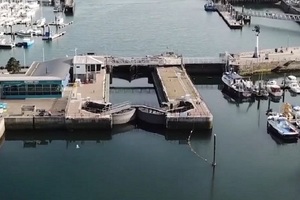Non-Proliferation Treaty Review Conference: Speech by UK Permanent Representative to the Conference on Disarmament
Mr President
In taking the floor, especially under an Argentinian President, I am reminded of Jorge Luis Borges’ injunction not to speak unless you can improve the silence. I cannot promise to do that, but I will at least be brief.
We have finally reached the culmination of a seven-year review cycle. Throughout your almost three years as President-designate, and over the last four weeks of sometimes gruelling negotiations, you have guided us with great skill, professionalism, transparency, and good humour, and I thank you very sincerely for that. I know that you have been supported in this by a superb team, including the Chairs of the Main Committees and Subsidiary Bodies, by the Secretariat, led most ably by Mr Tudor, and by your own Argentinian team. Many others have facilitated and brokered discussions between delegations on various issues to prepare the ground for the final document you produced. You and they are all a credit to your services and your countries.
Mr President
That one delegation has prevented us from adopting a substantive consensus outcome document does not negate the four weeks of intensive discussions we have had on all aspects of our Treaty. I recognise that many delegations were disappointed at what was in your text—or perhaps rather what was not in it. But it was an honest attempt—by you and by all of us—to identify areas of agreement, which my delegation was ready to support. I deeply regret that it was unable to garner consensus.
That we were so close to reaching consensus is a tribute not only to how hard you and most delegations here have worked these past four weeks, but actually is also testament to the fact that there remains more that unites us than divides us.
But we cannot escape the fact that there are deep divisions, in this Treaty and in the world. They are only exacerbated by Russia’s illegal war against Ukraine. As well as trampling on the values and the Charter that underpin the United Nations, imperilling international peace and security, and plunging the world into a food crisis, Russia’s aggression also poses grave challenges to the nuclear disarmament and non-proliferation regime and to the peaceful uses of nuclear energy. Many of us have highlighted those challenges consistently throughout this Review Conference, and they have been restated with admirable clarity in the statement delivered earlier by the distinguished Representative of France, with which my delegation fully associates itself. Perhaps it was inevitable that Russia would not allow this Conference to adopt a document that exposed those challenges to the world, even as obliquely as the one you put before us did. But they have been laid bare throughout these four weeks. Just as they have this evening, they try to to blame everyone but themselves for their actions. But while Russia can block the adoption of a document, or filibuster an international conference, they cannot hide from the world’s revulsion at their actions.
Mr President
Even if there is no common agreement on the way forward, our obligations under the NPT endure. Our prior commitments, from 1995, 2000 and 2010, remain valid. We must continue to make progress along this path, even if we have been unable to update the roadmap.
The United Kingdom will do its part. In particular, we look forward to taking forward, with Norway, the initiative on clarifying and applying the principle of irreversibility; to contributing to the working group on strengthening the review process that we have agreed to this evening; and to establishing, with the United States and 30 other partners who have joined so far, the Sustained Dialogue on expanding access to the peaceful uses of nuclear technologies. We also remain committed to working internationally to reduce the risk of nuclear conflict and enhance mutual trust and security—an increasingly urgent task.
Final document or no, the NPT remains, and will remain, the cornerstone of the international nuclear disarmament and non-proliferation architecture, and makes a vital and integral contribution to international peace and security. The United Kingdom takes its obligations, commitments and responsibilities seriously. My country will continue to play its part in bringing about a safer world for all and achieving the peace and security of a world without nuclear weapons.
